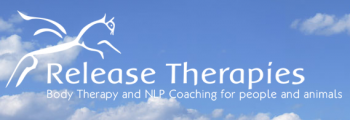
Part 4: Emotional and Mental Patterns
“Stress” and inflammation
Many pain issues involve inflammation and swelling.
On my wall is a chart illustrating influences on the acid/alkaline balance in the body. Acid can be thought of as inflammatory, versus alkalinity which is detoxifying soothing and healing of the body. It is mostly about food, but interestingly enough, the most acidifying or inflammatory thing for the body is not a food, but “stress”, including anger fear ...all that good stuff.
is detoxifying soothing and healing of the body. It is mostly about food, but interestingly enough, the most acidifying or inflammatory thing for the body is not a food, but “stress”, including anger fear ...all that good stuff.
Stress is a thing we tend to think we “have”. The power of NLP allows us to find out something more useful: how you “do” stress. When people use terms such as procrastination and overwhelm, they are actually pointing to specific mental processes or strategies, that, like any habit can be changed.
If you dont think that it is possible to change these circumstances or reactive habit-patterns, well, that is just a belief that can be changed, like so many of your previous beliefs that are no longer useful. A useful question to ask is: could somebody else, even if it has to be superman or Nelson Mandela or Ghandi, respond differently to the things that trigger you into “stress” or how you talk to yourself. Imagining what it would feel like to be in their shoes, stand how they stand etc may give you some new perspective to your problem.
Emotional postures
Not only is “stress” inflammatory, but it is also contracting – think of your “up-tight” posture. Does yours tend to produce neck and shoulder tension, or perhaps low back tightness, or something unique to you?
Observing what you say to yourself, how you picture your present or future situation, what beliefs you have about your capabilities or prospects, gives you leverage on changing those largely automatic processes. There are often clues in your language:
-is someone or something giving you a pain in the neck?
-are snowed under, or being driven too hard, or is it all uphill? – these all have different body shapes associated with them.
Our taken-for-granted postures that contribute to our pain are often merely habits that developed as ways to feel safe or fit in socially in childhood or adolescence, see part 2.
Emotional states also contribute to dietary choices, such as using food or drugs to distract, console or calm yourself down, which leads us nicely to part 3, diet.
What to do
Everyone goes into their personal repeating patterns, and if you thinking about it in isolation was going to change it, it would have happened by now.
Find another human with an objective view who can give you feedback and help you see new possibilities. Friends and family may be good to talk to but may also be too close to you or match your own pattern too much to help. I recommend finding an NLP Coach.
Getting help: Note on Coaching vs Counselling
Note: There is a difference between “coaching” and “counselling” according to my personal definition. Of course this is a blatant generalisation, and only meant to inspire you to research and meet different helping professionals to find one that will best meet your needs at any specific time.
-counselling tends to focus more on the why you are like you are, and can be very past-focussed, not necessarily explicitly setting you up with new behaviours.
-pure coaching- may be as simple as helping you identify your goals and values and cheering you on to meet them, and may not explicitly help you get yourself out of stuck patterns. Also some people are completely overwhelmed and turned off by goal setting, so this style wont appeal – lookout for an upcoming article called “Why goals dont work.”
-NLP Coaching, as I practice it, starts with the patterns you currently have, shows you ways out of them, and helps you generate new behaviour that is aligned with your values. Insights about the origins of unhelpful behaviour often occur as new behaviour emerges. The plan is to have the triggers for the old behaviour start a new, more useful behaviour instead. Cunning ay?
Craig Love is an NLP Coach and a certified practitioner of 3 body therapies: ConTact C.A.R.E, Ortho-Bionomy, Zero Balancing, and is part way through adding the Feldenkrais Method of somatic education to his toolbox. He works in and around Auckland, New Zealand with animals as well as people, helping with issues as diverse as whiplash and back pain to phobias and anxiety, and with “labels” from Fibromyalgia to Crones Disease.
www.release.net.nz for more information.









